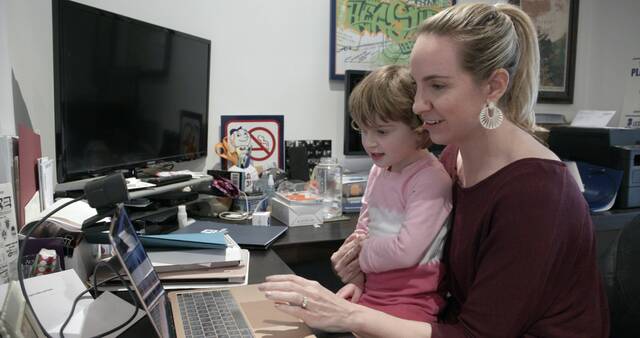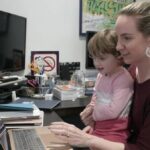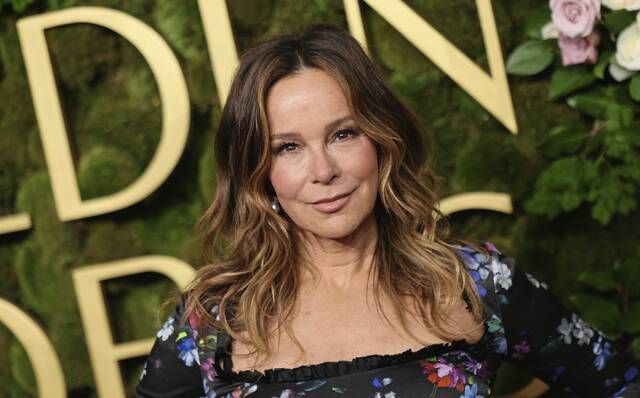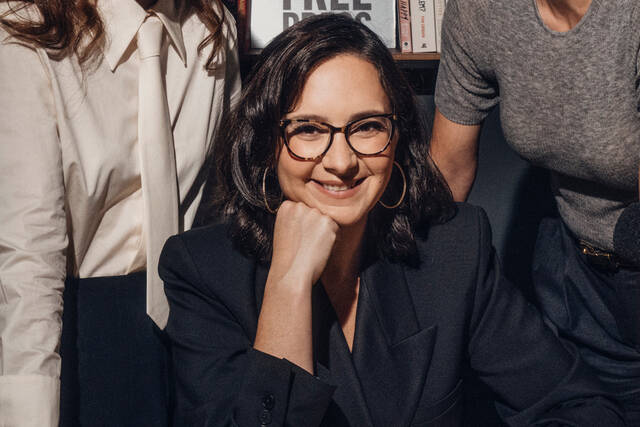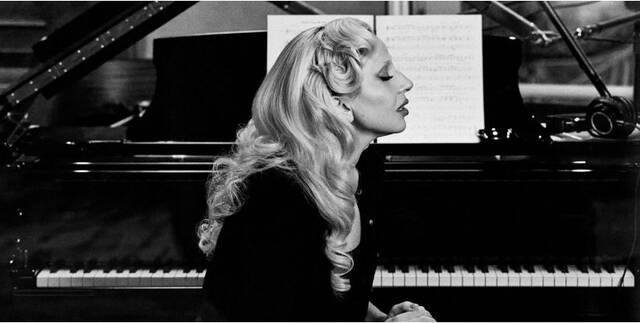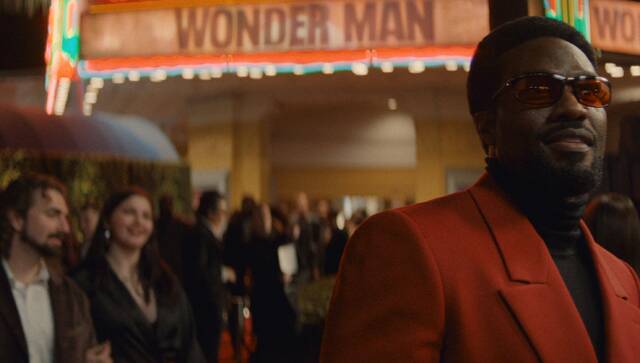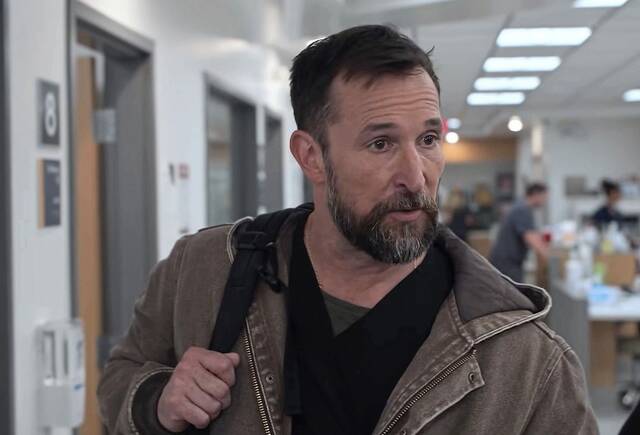PASADENA, Calif. – PBS’s “Independent Lens” chronicles the 2020 start-up website 19thnews.org, co-founded by Emily Ramshaw, in the film “Breaking the News” (10-11:30 p.m. Feb. 19, WQED-TV).
Ramshaw, who is featured heavily in the film, has ties to Pittsburgh and perhaps a genetic nose for news. Her mother, Mary Leonard, was deputy managing editor of the Pittsburgh Post-Gazette in the early 2000s (full disclosure: Leonard was one of my bosses at the time) and her father, Gregg Ramshaw, was news editor of what is now known as “PBS NewsHour.”
“I was in college and after college when Pittsburgh became my adopted city,” Ramshaw said in a phone interview earlier this month. “In many ways, I came to love Pittsburgh more than my own hometown of Washington, D.C.”
Ramshaw recalled time spent with her parents in their Shadyside home and eating pancakes at Pamela’s.
“It was a magical place to spend all of my holidays for almost 10 years,” said Ramshaw, whose parents now split their time between Bonita Springs, Fla., and Austin, Texas, where Emily lives.
The 19th* is named after the 19th amendment to the U.S. Constitution, which gave women the right to vote (the asterisk is there to indicate “the 19th amendment didn’t go far enough; it’s a work in progress,” Ramshaw said). It is an independent digital news start-up that began as a news source that aims “to empower women and LGBTQ+ people — particularly those from underrepresented communities — with the information, resources and tools they need to be equal participants in our democracy,” per its mission statement.
“Breaking the News,” from filmmakers Heather Courtney (“Where Soldiers Come From”), Princess A. Hairston (“Ladies First: A Story of Women in Hip-Hop”), Chelsea Hernandez (“Building the American Dream”) and Diane M. Quon (“Minding the Gap”), chronicles the first three years of the existence of The 19th* with a warts-and-all portrait.
The filmmakers intended just to follow the start-up through the 2020 election, but the pandemic derailed those plans. In early scenes, Ramshaw’s husband serves as a camera operator during the pandemic lockdown, filming her pitch to potential investors.
“It worked out well for the filmmakers,” Ramshaw said. “In a lot of ways I was more candid and vulnerable with my husband than I would be with any other filmmaker.”
Ramshaw said mid-filming she had concerns that she “lost control of the narrative” because she didn’t have editorial control.
“Over time I started to recognize the journey we were on at The 19th* and the journey that I was on as a leader was really instructive and could be very instructive for institutions grappling with some of the same things we’re grappling with,” Ramshaw said. “I feel like I have the responsibility as a white woman in leadership to be vulnerable and show the work that is required to build a truly inclusive newsroom.”
Looking back at the past four years, Ramshaw praised her colleagues and wishes she had trusted them to lead sooner, looking to them to “provide ideas for how we can do this better and more equitably and stand the test of time. I think sometimes news leaders think they’re operating in a silo, in a vacuum. Leaning on their peers further is, I think, a recipe for success.”
My conversation with Ramshaw came the day after TheMessenger.com shut down after burning through $50 million in funding in less than a year, laying off 300 journalists.
“It’s taken me five years to raise $50 million,” said Ramshaw, who now has a team of 60 at The 19th*. “The challenge we still have as a non-profit newsroom and newsroom that serves women and marginalized people is to convince folks journalism is worth supporting the same way they support the ballet or support the symphony. It’s a lynchpin of our democracy and I think we as journalists and as news executives are trying to make that case over and over again day in and day out.”
Ramshaw took a risk to launch The 19th* after a successful, stable job as editor-in-chief of The Texas Tribune, which she called “the gold standard in non-profit local news.” She said her parents initially thought her choice was crazy.
“It was a big leap to go from that to saying, ‘I think I can launch a startup,’ but very quickly once they saw the need and the gap The 19th* was filling, they became my closest sounding boards and still are,” she said. “I’m really lucky I have the kind of relationship with my parents where they are the people who love me and care for me most of all and also they’re almost like colleagues — the colleagues you want to go have drinks with at the end of the day.”
PBS plans ahead
PBS president and CEO Paula Kerger said PBS will continue to deliver “trusted, fact-based programs that explore not just the ‘what’ but the ‘why’” particularly in this election year through “PBS NewsHour,” “Washington Week” and “Frontline” episodes of “The Choice” devoted to profiling presidential and vice-presidential candidates.
“The issues in front of us are so significant and the state of the media today only amplifies those challenges in a world rife with misinformation and disinformation,” Kerger said during PBS’s portion of the Television Critics Association winter 2024 press tour. “People are struggling to find news they can trust and the context to understand our current moment.”
PBS has started planning for America’s semiquincentennial in 2026 with multiple initiatives under the “America at 250” banner including Ken Burns’ six-part, 12-hour “The American Revolution” in fall of 2025.
This year Burns’ two-part, four-hour documentary about the life and work of “Leonardo da Vinci” will air 8-10 p.m. Nov. 18 and 19.
This summer PBS explores the rise, fall and legacy of “Disco: Soundtrack of a Revolution” (June 18).



